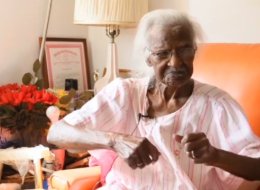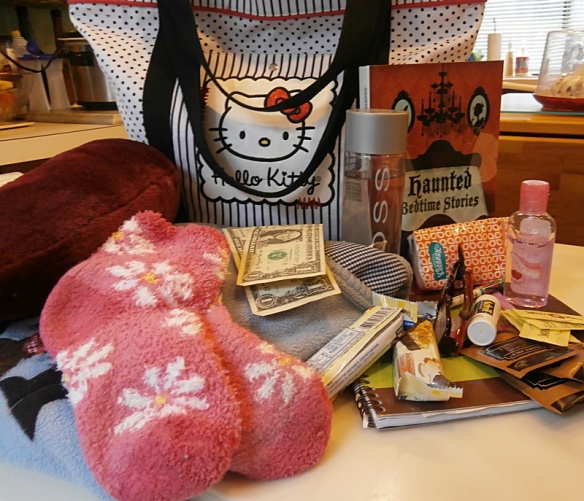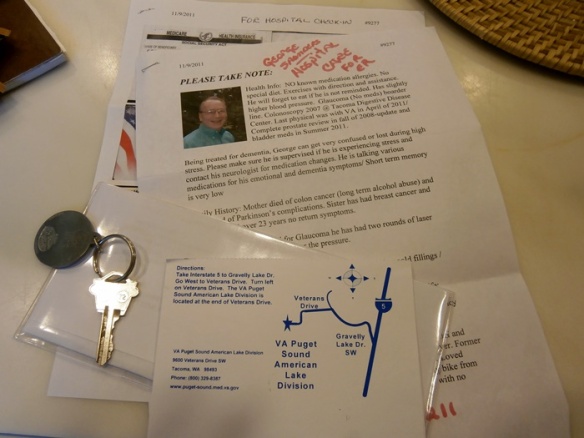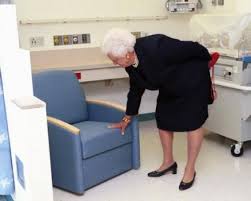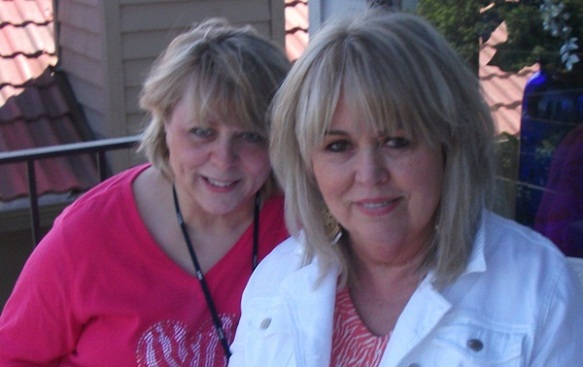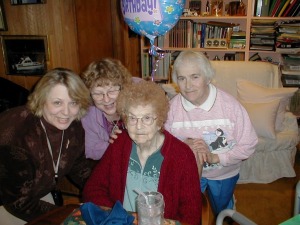
“We live too short and we die too long!” …Dr. Myron Wentz
By Marion Algier – THITW and Ask Marion
The rate of occurrences of Alzheimer's-Dementia (AD), ADD, ADHD, Autism, and debilitating Aging symptoms are through the roof. Everyone I know either suffers from one of these conditions (themselves); has a child, grandchild, parent, or grandparent who is afflicted; or they know someone, if not several some-ones, within their close circle that suffers from one or more of these diseases and conditions.
We are drowning in epidemics…
Having become the caregiver for a father-in-law who suffers from Alzheimer’s as well as heart disease; a mother-in-law with RA and onset dementia, who is in complete denial about either of their conditions or her part in the development of those infirmities; and a husband who has developed several afflictions that are generally explained away as normal aging, this has all become very personal. I have far too many friends and associates with children who suffer from ADD, ADHD, Autism… including Asperger's Syndrome (AS) and now I’m surrounded by the 80+ set, not to ponder the numbers and perhaps even the connection(s).
I have long believed that all these conditions and a lot more are related to a combination of diet, vaccines, too many meds, noise pollution and stress, etc… a long list. But we, who have become oblivious observers of our own lives have been sold ‘the official’ causes of these afflictions by Big Pharma, Big Agriculture, Big Business and a ruling class and their media minions who think they are smarter than we are or that we are ‘useless eaters’ just taking up space.
I recently went on the Adkins Diet to lose some weight I had slowly put on over several years and virtually over-night I noticed how much better I felt in general. The Adkins diet had always worked for me when I needed to shed a few pounds, but this was the first time that I really took notice of how much better I felt while I was on it; perhaps it is my age or that I’m just more aware these days? But I did a little more digging…
I am fairly stubborn! My husband would say that is an understatement! So once I started my new eating regiment, I went 3+ months without ever cheating. But since, I have eaten carbs on a few special occasions and at a few events when I didn’t want to put anyone out. Each time I noticed that I felt sluggish, tired or just a little out of sorts. Celiac Disease, requiring sufferers to eat gluten free, is also at epidemic proportions. And after Elizabeth Hasselbeck, formerly of The View and now co-host of Fox and Friends, appeared on The Factor as part of her book tour for The G-Free Diet: A Gluten-Free Survival Guide, Bill O’Reilly, not a Celiac sufferer, decided to give up wheat products to see if it would help him feel better in general. He reported the same results that I had after going on Adkins. He felt better and lost 20-pounds without changing anything else in his lifestyle… and he admits that since he doesn’t have a gluten allergy he does cheat once in awhile, but like me always feels a bit bloated or sluggish when he does.
Recently I watched a television program with Dr. Oz and then a day later I turned on PBS to find a special with Dr. David Perlmutter, a renowned neurologist, author and president of the Perlmutter Health Center. Perlmutter is known for advocating a functional and holistic approach toward treating brain disorders and is a frequent contributor to the Huffington Post, The Daily Beast and Mind Body Green.
At the Perlmutter Health Center, they deal with a variety of medical problems including arthritis, elevated cholesterol, bowel and digestive disorders, obesity, cardiovascular problems, respiratory disorders, including asthma, chronic fatigue syndrome, allergies, environmental sensitivity, cancer and a wide variety of other illnesses as well as a long list of neurological problems including epilepsy, stroke, Parkinsonism, dementia (including Alzheimer’s disease), myasthenia gravis, multiple sclerosis, amyotrophic lateral sclerosis, dystonia, joint pain and inflammation, other movement disorders, and neuropathy.
Changing our dietary habits and the eating habits of our children could also help reduce the symptoms of ADD, ADHD and even Autism.
In the PBS special Dr. Perlmutter pulled together what I had discovered independently through my research and was actually feeling myself. Bottomline: Wheat (gluten), carbs, and sugar are silently killing our brains, causing inflammation throughout our bodies and creating food induced hyperactivity thereby contributing to the “A“ epidemics: Alzheimer’s-Dementia (AD), ADD, ADHD, Autism (ASD) and aging.
Dr. Perlmutter points out that most of what Americans have been told about eating from the food pyramid they taught us in school, to shifting everyone to low fat diets, to giving up eating eggs, and to putting half of America on cholesterol medicine is wrong.
We need to cut our carbs, gluten, and sugar and pay attention to the sources of our food, plus add more good fats into our diet.
Shop the outside aisles of the market and with the exceptions of a few spices, etc., check out and go home. Read the labels of everything pre-prepared, frozen, boxed or canned that you do consider buying. Put in a garden, using non-GMO seeds, and create a compost heap for fertilizer. (There are some amazing options even for apartment dwellers, window box herbs, and many cities and towns now have community garden plots.) Eat less but better quality meat; try to buy wild or range grazed meat and poultry (and eggs) and wild and stream caught fish… or consider taking up hunting, fishing and gathering. You can supplement your protein needs with legumes and nuts.
The book Wheat Belly: Lose the Wheat, Lose the Weight, and Find Your Path Back to Health (Cookbook) rightfully blamed wheat for the American epidemic of obesity. And Dr. Permutter’s book Grain Brain: The Surprising Truth about Wheat, Carbs, and Sugar -- Your Brain's Silent Killers deals specifically with the effects of too many carbs, wheat, and gluten on the brain.
 Looking at a Better Way
Looking at a Better Way
Dr. Perlmutter started looking at the role diet plays in brain health after he got tired of treating his patients’ symptoms with drugs, which at the time was the only tool in his arsenal. He describes it like trying to get rid of smoke while leaving the fire burning.
In the past decade he learned that the brain is extremely sensitive to the food we eat and that our diet plays a pivotal role in our brain health.
He also learned that brain cells do replace themselves, but once you have reached the Alzheimer’s stage it is too late.
Too Many Carbs, Too Little Fat
As we’ve moved towards a low-fat diet high in grains, the kind recommended in the USDA food pyramid below, we’ve traded in eating fat for eating more carbs. We have never before been exposed to this level of carbohydrate consumption in human history and this experiment is not going well. Plus, much of the wheat, corn, and soy produced today has been genetically modified (GMO).
In a recent report on the 5-worst food companies there were 3 glaring occupants on the list: Monsanto, Nestle, and Coca Cola, that should jump out and cause everyone to both take note and do their homework.

High blood sugar levels correlate directly with brain shrinkage of the hippocampus, the seat of memory and the first target of Alzheimer’s. Perlmutter states quite emphatically that there is no treatment whatsoever for Alzheimer’s and that drugs flat-out don’t help.
If you begin to mentally lose it in your 60′s and 70′s, sometimes even earlier, it becomes very hard to reverse the trend, so it is much wiser to take steps to prevent mental decline sooner than later.
Excess carbs create inflammation and free radicals, two major causes of brain aging.
Perlmutter found in his practice that nothing is worse for your brain than a low-fat diet. It contains too many carbohydrates and too little brain-healthy fat. He promotes olive oil, coconut oil, butter, avocados, grass-fed meat, wild salmon, and eggs. (No margarine, trans fats or vegetable oil). Have you ever thought about Canola Oil and asked yourself… what is a canola?
In his practice Dr. Permutter puts patients on a diet that is 50-60% good fats. The brain is 70% fat by dry weight and he finds this much fat is ideal. Glucose is considered the main fuel for the brain, but our brains are quite happy to burn fat which he refers to as a “super fuel” for the brain.
One of the biggest ongoing debates in nutrition is what are the best ratios of fat, carbs, and protein. Perlmutter cites a JAMA study that followed two groups for 12 months. One group was on the diet popularized by Dr. Atkins — a low carb/high fat/high protein diet. The second group followed Dr. Ornish’s low fat/low protein/high carbohydrate diet. This diet is identical to the ultra-low fat diet being promoted in the book Power Foods for the Brain.
For those of us who have been brainwashed into believing that low-fat is good, it may come as a shock that the people who followed the Atkins diet did better on all health markers including triglycerides, good cholesterol, and blood sugar levels.
Perlmutter reminds us to think of cholesterol as our brain’s friend. Low cholesterol levels increases the risk of suicide, depression, and dementia. The risk of dementia is reduced by 70% in those with high cholesterol. You read that right – high cholesterol reduces risk of dementia.
The Problem With Gluten

Perlmutter appreciates that the book Wheat Belly made the public aware of the profound modification of wheat itself.
In the past 50 years, wheat has been changed to contain up to 50 times more gluten than it did when our ancestors baked their first loaf of bread.
We are biologically unprepared to handle this big of a change in such a short period of time. For arguments sake, Dr. Perlmutter states that humans have been around for 2.6 million years yet didn’t start eating wheat and gluten in any form until about 10,000 years ago; a mere blip in our entire existence! Or .004% to be more precise.
Gluten is a protein most commonly associated with wheat but can also be found in other grains like rye, oats, and barley; prepared foods of all kinds; and even in medications.
It’s been known for decades that gluten can cause a long list of neurological problems including dementia, headaches, seizures, tremors, depression, memory loss, and epilepsy in those who are gluten-sensitive. But what hasn’t been realized until recently is how ubiquitous gluten sensitivity is. If eating gluten tears up your gut, you know you have a problem. But it turns out that most people have no obvious digestive upset from gluten, so this is not a reliable indicator of gluten sensitivity.
Grain Brain makes a solid case for how eating more grains and carbohydrates of all kinds, and less goods fats, is taking a toll on our collective brain health. And it offers suggestions for what you can do about it.
Additionally, Dr. Permutter points out the need for vitamin D in our diets and that when watching our diets, it is the glycemic index that we should be concerned with. In an example, he points out that between the four foods: wheat bread, white bread, white sugar and a candy bar, that reality is quite different from what most people think. When looking at the glycemic index the worst choice of the four foods listed is the wheat bread, not the candy bar. In fact, the candy bar, not that he is promoting eating candy, is the best choice out of that group which goes in this order: candy bar, white sugar, white bread, wheat bread… when looking at the glycemic index.
Perlmutter also talks about the worst breakfast choice, for anyone, being a glass of orange juice and a bowl of packaged cereal. A glass of orange juice isn’t much different than having a coke for breakfast. Then we add a bowl of additional sugar, gluten and preservatives = cereal, covered with milk (casein… see below) and sending our kids to school sugared and carbed up… And for children with ADD, ADHD or Autism (ASD) it is even worse, plus then we add drugs into the equation to theoretically calm them down, and we wonder why they can’t learn or why they act out.
Several recent studies published in the International Journal of Attention Disorders support a connection between ADD, ADHD and Autism and the broader eating patterns of a ‘Western-style’ diet as well. It has been know for quite some time that food coloring and dyes should be avoided by people with ADD and ADHD. And according to Craig Kendall, author of The Asperger's Syndrome Survival Guide, gluten and casein free (GFCF) diets help overcome Asperger’s Syndrome symptoms, and symptoms of children suffering from any form of ASD, including improving their behavior. Casein is a protein found in milk. Proponents of a GFCF diet believe people with Autism have a "leaky gut," or intestine, which allows parts of gluten and casein to seep into the bloodstream and affect the brain and central nervous system. The belief is that this may actually lead to Autism or magnify its symptoms.
We need to cut our sugar levels by cutting out/down carbs, gluten and sugar and adding fat from good sources. (No margarine or vegetable oil). And we need to go back to a natural diet… vegetables, fruit (in moderation), seeds, nuts, natural fats, range raised meat and poultry, wild fish, and range-eggs. And, the most important brain anti-oxidant is cholesterol. That’s right… cholesterol.
Cholesterol, the most important brain anti-oxidant, has been taken out of our diets, like good fats. It is imperative for natural brain function. Eggs are one of the best things we can eat and c-reactive protein causes inflammation and is a direct contributor to the development Alzheimer’s Disease, if you are pre-deposed or added to other factors. Yet the trends and diets that we have all been sold for decades now have us doing and consuming exactly the opposite says Dr. Permutter.
Dr. Oz, a former Oprah team-member… not sure of their present relationship, actually pointed out that with the coming of ObamaCare, if it is not ultimately scrapped or implodes on its own, there will be a need and a move toward more holistic and homeopathic treatments, alternative medicine and healthier eating; perhaps the only good thing that ObamaCare will bring. (Remember, Dr. Oz was a major part of the promotional team for the H1N1 vaccine, but his wife and daughters like the Obama girls, did not take that vaccine.) But now physicians like Dr. Oz with an array of featured guests and experts, plus others including Dr. Mercola, Dr. Sears, and Dr. Perlmutter, who have always looked for alternatives are activiely promoting natural solutions. People are increasingly looking to places like Sanoviv, an alternative, holistic and integrative health facility built in Rosarito, Mexico by Myron Wentz, Ph.D, a microbiologist and immunologist who invented the test kit for Epstein Barr and founded Gull Laboratories, USANA and Sanoviv, S.A. de C.V. (Sanoviv) …because the AMA wouldn’t allow it in the U.S.
Coffee is all of a sudden being promoted as a good thing, Oulong tea and peaches (without sugar) have anti-Cancer properties. Vinegar and pharmaceutical grade hydrogen peroxide have great healing powers. The list of natural cures and preventative remedies is endless and suddenly being promoted instead of destroyed or hidden. See Tales of a Shaman's Apprentice.
America, the winds of change are blowing; many of them not good but some offer some great possibilities amidst the destruction of what was the greatest healthcare system in the world at its core, at least before the Rockefellers and other corruptocrats got their hands on it.
I am not a health practitioner, but have explored alternative health solutions all my life and I definitely have spent more time studying nutrition than physicians do in Med School. I have also researched and sold several holistic health products and high-end all natural nutritionals. And when my daughter developed ulcerative colitis we took her to Sanoviv, an alternative healthcare facility outside the United States, where I took every class and seminar they allowed me to attend during her treatment. There is a place for surgery and some medications, but because of Big Pharma, Big Business, Big Agriculture and corruption, Americans are over medicated and sicker than they should be… Why? So that we ultimately can be put on drugs or sold an agenda. It is all about money and control! The information is out there; we all have to become more proactive and use the common sense that God gave us. If it feels or sounds wrong or questionable… it probably is!
About The Author: I am 61-years-young and am in perfect health (and yes, I am knocking on wood as I say that). I have never been admitted to a hospital; I was delivered by a mid-wife. I, as well as my children… the two and four-legged ones, only received the immunizations and vaccines that they absolutely needed; I did my homework in depth long before there was an Internet. I, as well as my children, never ate store bought, pre-fabed, commercial baby food (or commercial pet food), let alone the glue they call formula that is given to most American babies these days. (Nor did I use baby wipes, floor and rug cleaners with chemicals in them or pesticides… I used old school warm water and mild soap instead of wipes, and nontoxic natural-based vinegar and orange oil type cleaners and for pest control.) I also have always done the majority of my marketing from the outer aisles of the grocery store. And even though we were suburb dwellers, my dad and brother hunted and fished and much of our other meat (now and when I was a child) was purchased from a butcher or supplier who guaranteed antibiotic and steroid free meat… and money was an object through much of my life so I learned to be creative.
I have only been to a doctor less than 20-times in my entire life if you do not count the well-baby checks and for the necessary shots I did get as a kid. I have only ever had one mammogram and 2 pap smears and I don’t get flu shots, nor have I ever been on any long-term medications and probably have taken no more than a few bottles of aspirin or the like in 60+ years… and I am just now going through menopause. The only (out-patient) surgery I have had was when I slipped on some black ice and broke my ankle.
My daughter was perfectly healthy as well, at least until she had to have what seemed like an endless batch of shots to travel around the world with the Semester at Sea (SAS) program and after getting one last shot on-board (from an unknown source) after a Japanese Encephalitis outbreak about halfway through the sail, she came back with severe ulcerative colitis. Coincidence? We took her to Sanoviv.
My husband, who pretty much beat up his body through sports… football, baseball, basketball, snow and water skiing, racquetball, competitive swimming, etc., has recently developed related health issues but it seems to be the inflammation that has attacked those previous injuries and weak spots.
I consider myself lucky in many ways and was blessed to be born healthy and to have parents who made all the right food and health choices for me and my siblings… at least until we were old enough to be able to follow their advice or choose to make our own wrong decisions.
My mother always cooked at home; going out to dinner was a rare treat. We never drank soda. And doctors & dentists were visited only as needed. As a side job, my father even cleaned the office for our family doctor, an OD until forced to become an MD, who agreed with that philosophy; a pattern I carried through with my own children. None of us kids smoked, we drank in moderation when we got old enough and nobody did drugs. I played softball, tennis and snow skied but never felt the need to over-tax my body or to fry my skin in the sun. We ate in moderation so although I love sweets, I have only been on a diet 4-times in my life (3 of which were on the Adkins diet after age 40), and I now plan to stay on a modified version of that diet for life.
*My in-laws on the other hand, even with their new found knowledge, fight me daily about eating margarine instead of butter; over-salting their food… even though my father-in-law suffers from heart disease and is suppose to be on a salt-free diet; they seemingly fell for every new campaign that came down the pike throughout their lives; and they refuse to entertain the idea of cutting down on the medications and number of doctor visits. The system of eldercare has been an eye-opening journey in itself and the affect of the systematic brainwashing on that generation is both frightening and phenomenal.
Unless you are born with a serious defect or disease or are injured in later life, I truly believe that our choices and those we make for our children define our health, especially if we make the wrong choices or don’t do our homework! And therefore I am writing a new book, “ The Common Sense Path to Good Health”. Somewhere along the way we have lost our common sense in far too many areas!
Related and Sources:
Eating antibiotic-fed animals can cause health problems in humans
11 Food Ingredients Banned Outside the U.S. That Americans Eat
Margarine Linked to Lower IQs in Kids
The Drug Story
Western Medicine - Forbidden Cures
Technorati Tags:
Alzheimer's-Dementia,
AD,
ADD,
ADHD,
Autism,
Aging,
Debilitating Aging Symptoms,
Alzheimer's,
Dementia,
Books,
Inflammation,
Nutrition,
GFCF,
Sanoviv,
Choices,
Healthy Eating,
Joint Pain,
Connecting the Dots,
ObamaCare,
Holistic Medicine,
Common Sense,
Neuropathy


 Looking at a Better Way
Looking at a Better Way 

